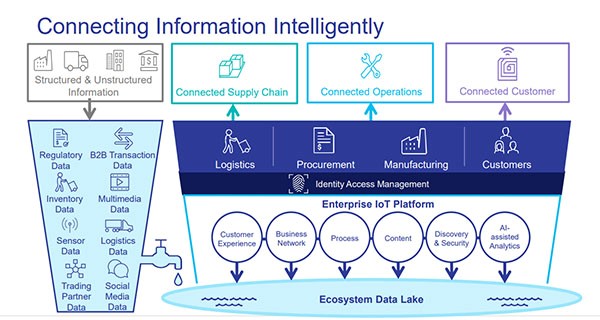
Digital technologies like the Internet of Things (IoT) are driving transformation across the entire manufacturing process by disrupting all aspects of production, from research and development to engineering and design, factory operations, and sales and support. Ultimately these technologies will increase efficiency in the manufacturing process, reduce costs and reduce the product time to market.
As we have discussed in many previous blog posts, IOT can be simply described as the means of allowing interconnected machines to speak to each other, up and download data and notify management when maintenance is required. There are many more applications but this should give you an understanding of the basics of IOT technology.
Trends and Challenges in the Manufacturing and Supply Chain Process
There are basically three trends dominating segments of our commercial environment presently. The first is Industrial. The need to be competitive is fueling new ways to operate more efficiently. The drive for innovation, an evolving, more tech-savvy workforce, and continuing robotic applications are a perfect breeding ground for technologies like IOT. Today its get lean or die.
Another trend, and of course challenge, is in the marketplace. Today's consumer is more customer concentric, meaning they have a high demand for customer service and a positive buying experience. Mobility has been a trend for some time but grows every year. Competition is also fierce in the online arena. Amazon has forced competition to adopt whatever technologies are necessary to keep pace.
Finally, the marketplace is now global. The size of our market is challenging for logistics planners and transportation providers alike. Particularly when you consider the insatiable desire of younger shoppers to have immediate, if not next day, gratification. The increasing complexity of global logistics will require the application of these new technologies as well for transportation providers in order to consistently meet demand. Intelligent data management, AI, IOT, blockchain technology and robotic technology will all add to the efficiency of today’s supply chain.
For more information on these emerging technologies and how they may benefit your organization's manufacturing process, contact us.



 Land-Link, a well respected professional organization, has been providing its clients with effective transportation and logistics solutions since 1978.
Land-Link, a well respected professional organization, has been providing its clients with effective transportation and logistics solutions since 1978.

